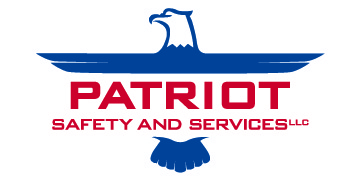Why Accuracy Matters More Than Ever
In any hiring decision, trust begins with the information employers have about a candidate. That information must be timely, complete, and above all—correct. When companies make hiring choices based on inaccurate or incomplete data, the consequences can ripple across the business. From compliance failures to safety incidents, the cost of screening errors is too high to ignore. That’s why accurate background screenings are not just a convenience—they are a necessity.
Whether hiring for DOT-regulated roles, safety-sensitive positions, or public-facing jobs, employers must be confident in their screening process. An inaccurate background check can lead to hiring someone who misrepresented their experience, withheld criminal history, or is simply not suited to the demands of the job. In regulated industries, those kinds of oversights can create legal exposure, disqualify the company from contracts, or trigger audits. Accurate background screenings give employers the clarity they need to make decisions that are safe, compliant, and informed.
How Inaccurate Screenings Create Risk
The margin for error in screening is narrower than many employers realize. A candidate’s record might appear clean in a national database but show serious convictions at the county level. Conversely, incorrect identification or outdated records might flag offenses that don’t belong to the candidate at all. When background screenings aren’t accurate, employers are left with one of two risks: hiring someone with a problematic history—or rejecting a qualified candidate based on false or misleading data.
In either case, inaccurate background screenings open the door to liability. Negligent hiring lawsuits are a growing concern for businesses across industries. If an incident occurs that could have been prevented by a proper background screening, and the company failed to perform or verify it correctly, they may be held responsible. Even in less severe cases, inaccurate reports can lead to disputes, damage internal trust, and slow down the hiring process with unnecessary back-and-forth.
The Compliance Imperative
Accurate background screenings are also central to legal compliance. Under the Fair Credit Reporting Act (FCRA), employers must provide clear disclosures to applicants, obtain written consent, and follow a specific process if they intend to take adverse action based on screening results. If the background report is inaccurate, the candidate has the right to dispute the findings and request a correction.
Failing to follow this process, or using inaccurate information to make hiring decisions, can lead to FCRA violations, legal claims, and damage to the company’s reputation. Employers must ensure that the information they’re relying on is current, verified, and obtained from legitimate sources. Working with a professional provider that specializes in accurate background screenings makes that possible.
Regulated industries like transportation, healthcare, and financial services also require stricter documentation and verification standards. These employers must often prove to auditors, licensing boards, or government agencies that their hiring process meets federal and state guidelines. In these cases, accuracy isn’t optional—it’s critical.
Building Trust and Consistency
Accurate background screenings promote fairness and consistency in the hiring process. When every candidate is evaluated using the same standards and verified data, the results are defensible. This consistency helps employers avoid bias, support their hiring decisions with confidence, and maintain alignment with internal policies.
From the candidate’s perspective, accuracy shows respect. Job seekers are more likely to trust employers who conduct fair, transparent background checks and who provide opportunities to clarify or respond to findings. Accurate screening also reduces the likelihood of unnecessary delays or disputes, helping companies move candidates through the hiring process efficiently.
For companies hiring across multiple locations or for various roles, standardizing accurate background screenings across all teams ensures that risk is managed evenly and that internal HR practices are aligned with external expectations.
What Accurate Background Screenings Should Include
To deliver reliable, complete results, a screening provider must go beyond surface-level checks. A truly accurate background screening should include:
- Identity verification using a Social Security number trace
- County, state, and federal criminal records searches
- Employment history verification
- Education and credential verification
- Optional driving record checks (MVR) for driving positions
- Optional sex offender registry and global watchlist searches
These components allow employers to match job roles with appropriate risk factors. A one-size-fits-all approach is rarely effective, which is why screenings should be tailored to the specific requirements of the position.
Timing also matters. Background screenings must be based on up-to-date data, with prompt reporting and clear documentation. Stale records or slow results can create decision-making bottlenecks or lead to outdated findings being used inappropriately.
How Patriot Safety and Services Ensures Accuracy
Patriot Safety and Services specializes in helping employers make confident, compliant hiring decisions by providing accurate background screenings that meet industry, legal, and operational standards. We support clients across transportation, construction, logistics, healthcare, and more, delivering screening services that are reliable, customizable, and audit-ready.
Our process begins with a clear understanding of your hiring goals and compliance obligations. From there, we help you select the right screening package—whether for DOT-regulated positions, entry-level roles, or executive hires. Every background screening is conducted using verified data sources, and all results are reviewed for accuracy before being returned to the employer.
We integrate our screening services with other hiring solutions like drug testing, DOT physicals, and TPA compliance services—creating a seamless experience for HR teams that need results quickly without sacrificing precision.
Patriot’s systems are also built for documentation. Our digital reports are stored securely, formatted for audit readiness, and delivered with clear summaries so that decision-makers can act without delay. We also support employers through the adverse action process, helping ensure that legal steps are followed when a hiring decision is impacted by screening findings.
The Bigger Picture: Accuracy and Business Performance
Accurate background screenings don’t just prevent problems—they also support stronger business outcomes. When employers bring in candidates who are fully qualified, honestly represented, and appropriately vetted, they reduce the risk of turnover, increase workplace safety, and build trust across teams.
A reliable screening process helps maintain customer confidence, protects business relationships, and ensures that employees meet the standards expected of their roles. It also reinforces internal culture by showing that policies are applied fairly and that every hire is made with care.
Over time, businesses that invest in accurate background screenings tend to experience better hiring outcomes, stronger team cohesion, and lower exposure to compliance risk. It’s a small step in the hiring process—but one with major implications for long-term success.
Why Accurate Screening Should Be the Standard
With the stakes so high, employers can’t afford to rely on background screening services that are inconsistent, incomplete, or outdated. Choosing a provider who prioritizes accurate background screenings ensures that your team is operating with verified information, clear documentation, and a consistent standard of professionalism.
Patriot Safety and Services delivers the kind of accuracy today’s employers need—not just to comply, but to thrive. Our clients trust us to provide thorough, legally sound background checks that fit into their hiring workflow and support their risk management strategies. Whether you’re hiring one employee or one hundred, accuracy should never be optional—and with the right partner, it doesn’t have to be.





